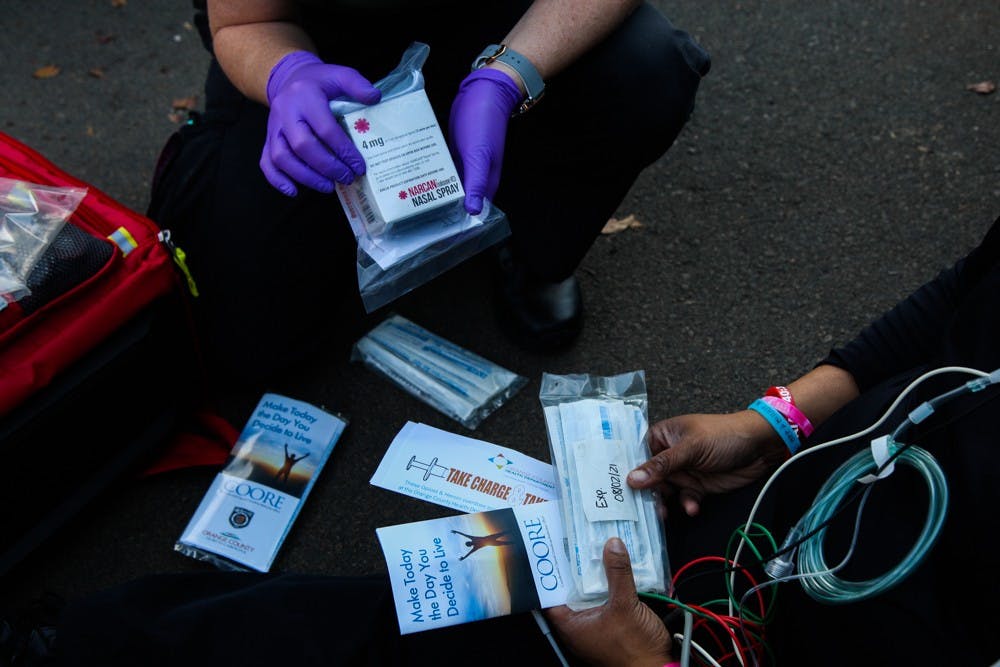The North Carolina Department of Health and Human Services released a funding opportunity on Oct. 19 intended to decrease the impact of the opioid crisis on people in the criminal justice system.
The funding — which was given to the NCDHHS as an award from the U.S. Bureau of Justice Assistance — amounts to $5.8 million. At least nine organizations across the state will receive this money as a grant through an application process.
Applications can be found on the NCDHHS website, and are due Dec. 3. The anticipated performance period is from Feb. 1, 2022 to Sept. 30, 2023, according to the application.
Kody Kinsley, the NCDHHS chief deputy secretary for health, who oversees the Division of Mental Health, Developmental Disabilities and Substance Abuse Services, said the link between substance use and the criminal justice system is often manufactured by substance use being treated as criminal action instead of treatable disease.
“Substance use disorder is a disease,” Kinsley said. “Yet, it is a medical issue that is criminalized for many, and more often enforced for people of color, unfortunately.”
Nearly 3,000 people in North Carolina died from drug overdoses in 2020 — up about 26 percent from 2019, according to the Opioid Action and Substance Use Plan Data Dashboard. Additionally, emergency department visits in the state related to opioid overdoses have increased steadily during the pandemic.
Kinsley said the pandemic has put strain on everyone, and that, though a sudden loss of stability can increase the likelihood of relapse, these grants can help.
“The great news is that while we have a historical stigma in our country about substance use being a failure of will, what we know now is that substance use disorder - and in particular opioid abuse - is a disease, and like other diseases it can be treated," Kinsley said.
The NCDHHS will use these grants to implement prevention strategies and medication-assisted treatment, based on the Opioid and Substance Use Action Plan to decrease overdose deaths and to decrease criminal justice involvement in the opioid crisis.




